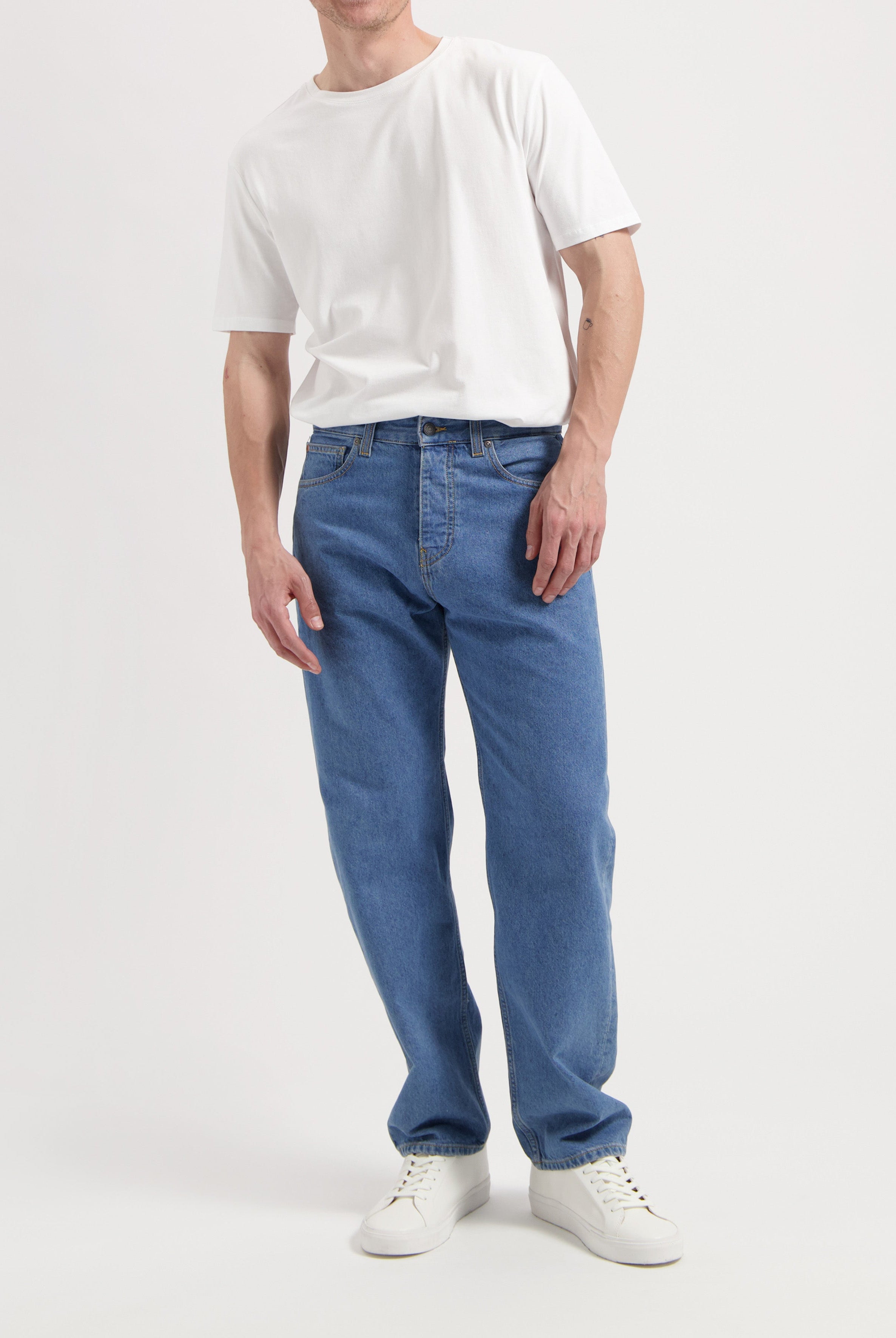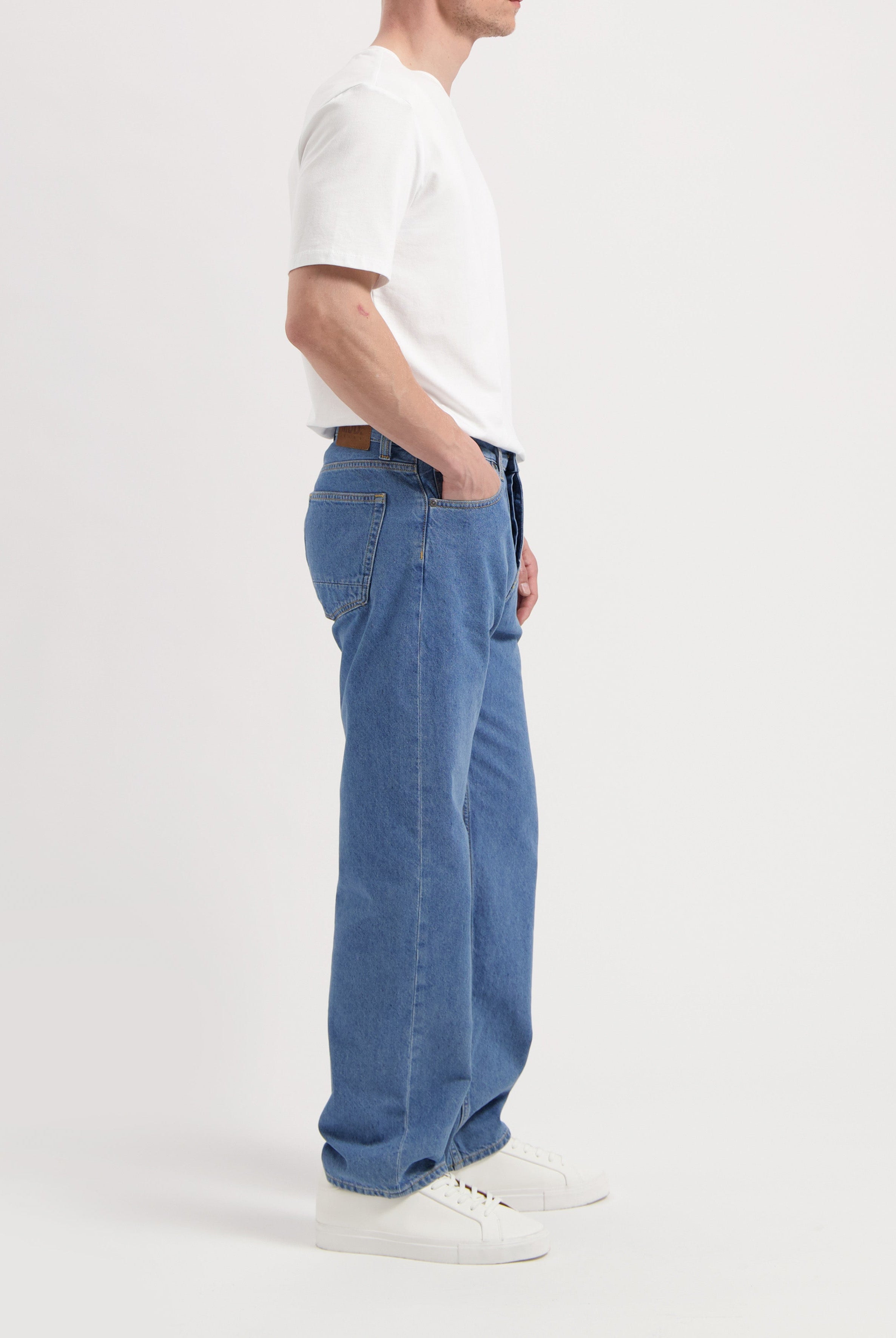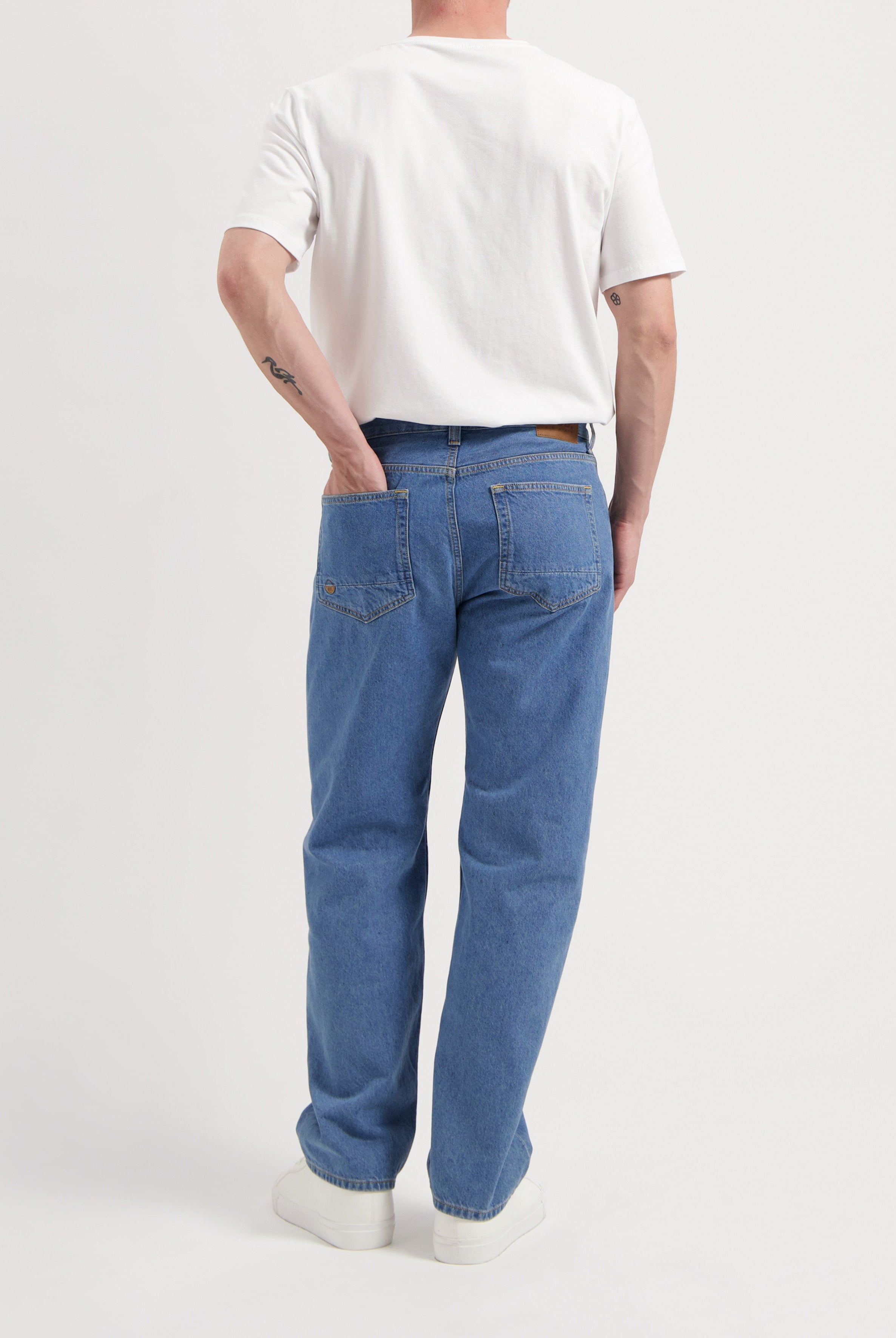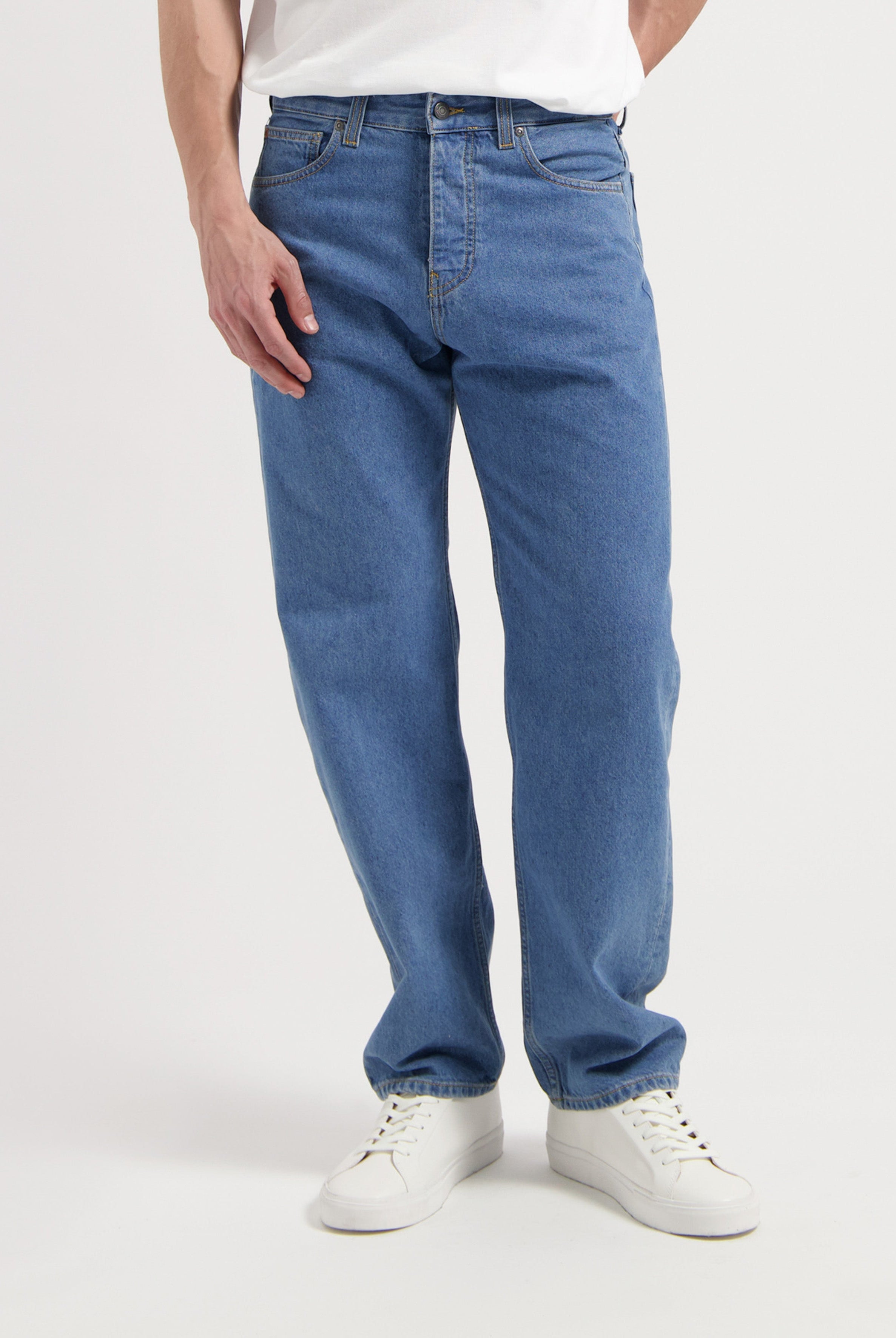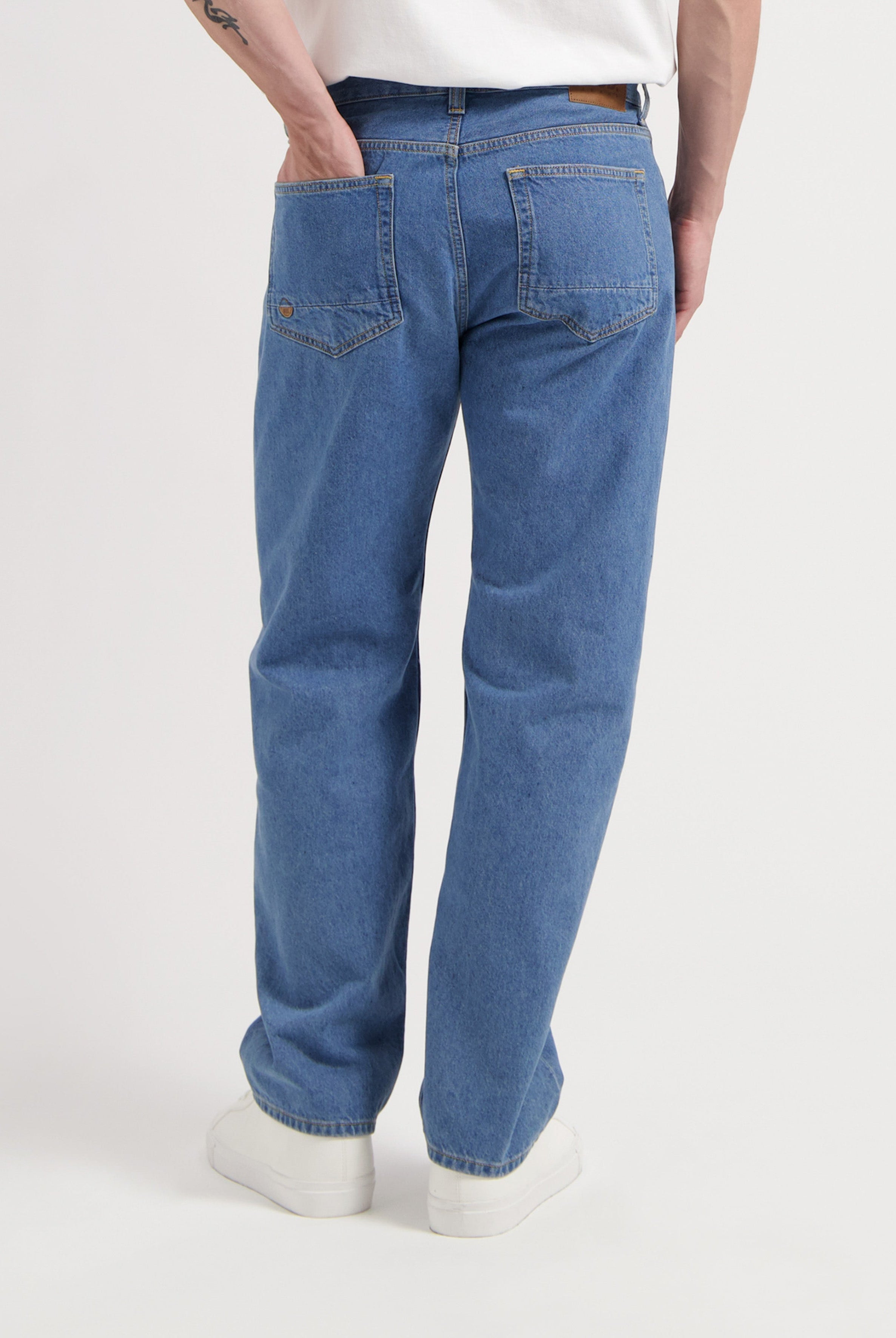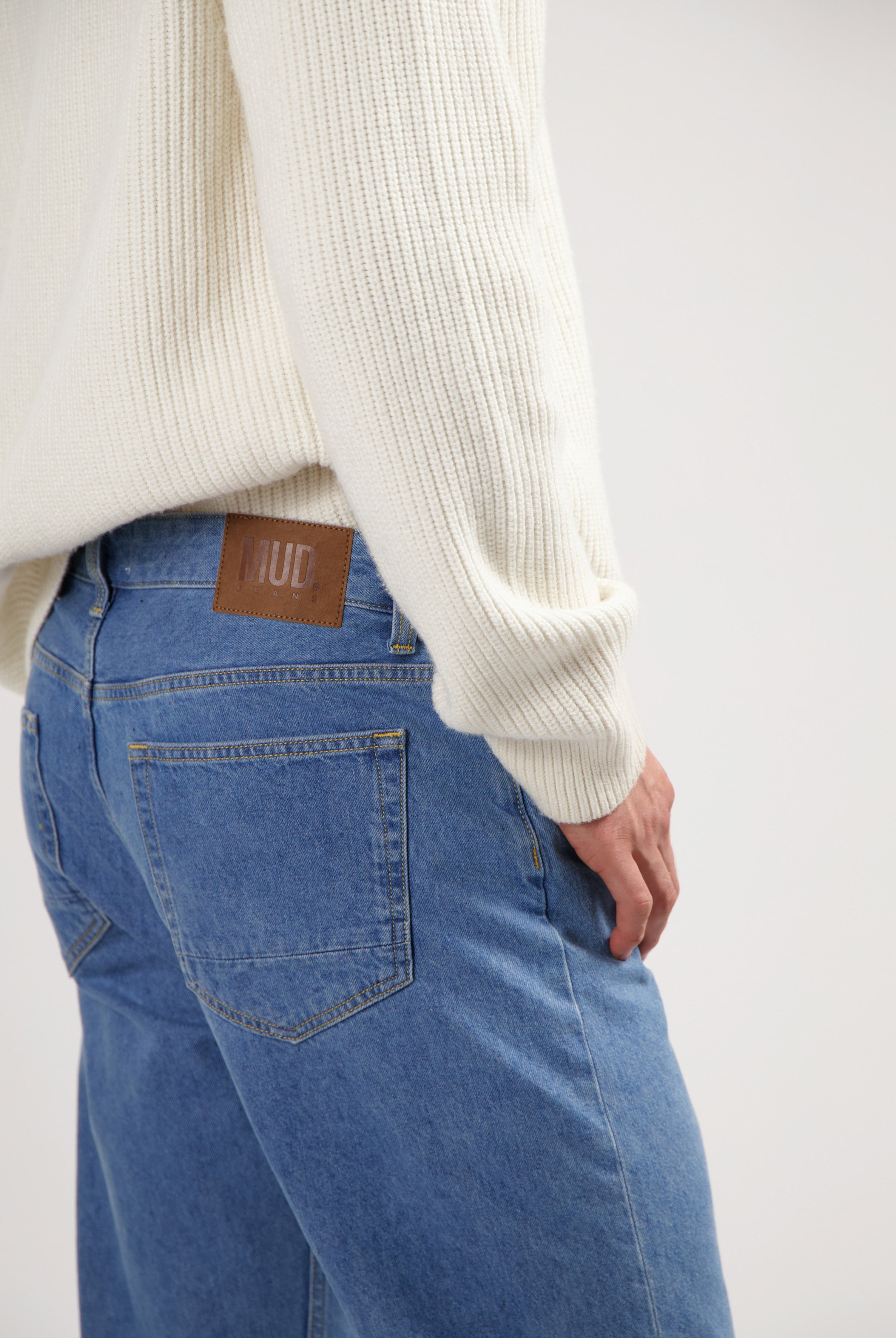Have you ever wondered what makes organic cotton so special? Organic cotton grows without the use of harmful chemicals, benefiting the planet, people, and animals. But organic cotton is much more than that. In this guide, we’ll explore the world of organic cotton, including what it is, how it differs from conventional cotton, and why it matters.
In this guide:
- What does organic cotton mean?
- What is organic clothing?
- Is organic cotton better? 5 reasons
- Organic cotton vs. ‘regular’ cotton: a comparison
- Why is organic cotton important? The impact of cotton production
- How do you know it's organic cotton?
- Shop sustainable organic cotton jeans at MUD Jeans
- Frequently asked questions about organic cotton

What does organic cotton mean?
Organic cotton is a textile fabric used in the fashion industry, often by companies prioritising sustainability. Unlike conventional cotton, it is grown without synthetic pesticides, herbicides, genetically modified seeds, or artificial fertilisers. Natural methods and materials are used to maintain soil fertility and encourage biodiversity. Pests and weeds are also managed using eco-friendly techniques. Organic cotton is often considered a more environmentally friendly alternative to traditional cotton.
What is organic clothing?
Organic cotton is often used for organic cotton products such as organic textiles and clothing. These natural materials are sourced from certified organic agriculture to reduce the environmental impact while ensuring the production methods are both human- and animal-friendly.
Is organic cotton fabric better? 5 reasons
You may wonder why organic cotton is better than other (synthetic) materials, such as polyester and viscose. Below are five reasons that might convince you to choose organic cotton.
1. More eco-friendly
Organic cotton is more environmentally friendly because it’s produced without pesticides or harmful chemicals, which helps reduce soil and water pollution. In addition, organic cotton cultivation uses significantly less water and promotes soil quality through practices like crop rotation and the introduction of beneficial insects.
2. Improved working conditions
Companies that cultivate organic cotton often provide good and safe working conditions for both organic cotton farmers and garment makers. Both groups receive fair wages, which improves their quality of life and supports their families. Additionally, workers are not exposed to harmful chemicals and can take time off for medical needs.
3. More sustainable in the long term
Another benefit of organic cotton is that the production is more sustainable in the long run. By avoiding harmful pesticides and synthetic fertilisers, organic cotton production has a minimal impact on the environment. This approach supports the ecosystem, improves soil quality, and fosters the growth of native plants and wildlife. As a result, the earth stays cleaner.
4. Better for your health
Did you know that organic cotton is also better for your health? It feels softer on your skin and is free from harmful substances that could be absorbed through your skin. Given that your skin is your body's largest organ, using organic cotton helps ensure you're taking good care of it.
5. Reduced CO2 emissions
Finally, organic cotton production reduces CO2 emissions. Growing organic cotton requires less energy than conventional methods, leading to lower greenhouse gas emissions. By choosing organic cotton, you are not only selecting a beautiful product, but you are also supporting a reduction in the fashion industry's environmental impact.

Organic cotton vs. conventional cotton: a comparison
Conventional cotton is also a natural product, right? That's right, both types come from the cotton plant (Gossypium). So, why does it make sense to choose organic cotton? Below, we have created a table where you can easily see the difference.
|
Feature |
Organic cotton |
Conventional cotton |
|
Cultivation method |
Grown without synthetic pesticides, herbicides, or fertilisers |
Uses synthetic pesticides, herbicides, and fertilisers |
|
GMO seeds |
No GMO seeds |
Often uses GMO seeds |
|
Water usage |
More efficient water management, often using rainwater |
Higher water needs, often through irrigation |
|
Soil health |
Promotes biodiversity and soil fertility |
Soil depletion due to intensive farming |
|
Processing |
No harmful chemicals in processing |
Uses chemical bleaches and dyes |
|
Environmental impact |
Lower environmental burden supports ecological balance |
High impact due to chemical use and water pollution |
|
Working conditions |
Strict standards and certifications |
Standards are not always guaranteed |
|
Costs |
High quality, slightly more expensive |
Lower quality, cheaper |
Why is the organic cotton production important? The impact of cotton
The impact of cotton production is huge but often invisible to you as a consumer. Worldwide, 2.5% of total arable land is used to grow cotton, which seems not that much and will therefore have little impact. However, the reality is quite different. Each year, the industry uses around 200,000 tonnes of pesticides and 8 million tonnes of fertilisers. Not to mention how much water is used. The industry standard for producing one pair of jeans is 7,000 litres of water (that's almost 54 full bathtubs). In short, choosing organic cotton clothes makes a significant difference.
How do you know it's organic cotton?
As mentioned earlier in this article, organic clothing must meet certain criteria to be labelled as ‘organic’. But how do you know you are actually buying fashion made (partly) from organic cotton? It's important to look for specific labels. Below are four key labels to watch for when buying organic cotton clothing.
1. Global Organic Textile Standard (GOTS)
GOTS, which stands for Global Organic Textile Standard, is a certification that sets standards for the production and processing of cotton. At least 70% or 95% of the garment must be made of organic cotton, depending on the specific certification level.
2. OEKO-TEX®
OEKO-TEX Standard 100 is a textile certification that shows clothing is tested for harmful substances that could cause allergic reactions. This label ensures the product is safe for both your health and the environment.
3. Post-consumer recycled cotton (GRS)
GRS, or Global Recycled Standard, is a certification that signifies a product is made from recycled materials. The label can also be used for other materials, including plastics.
4. Organic Content Standard (OCS)
The Organic Content Standard (OCS) sets specific requirements. The product must be composed, at least in part, of organic materials, and both the raw materials and the production process must be traceable. The goal is to promote organic crops and make agricultural production more organic.

Shop sustainable organic cotton jeans at MUD Jeans
Organic cotton is a sustainable alternative to conventional cotton. It avoids harmful substances, often ensures fair wages for workers, and has a minimal ecological footprint.
MUD Jeans uses only organic cotton and other sustainable materials. Most MUD Jeans are typically made from 60-75% organic cotton, with up to 40% recycled denim. The organic cotton is certified by OCS and meets the Global Recycled Standard (GRS). By choosing us, you’re making an eco-friendly and ethical choice that makes you look good, feel good and do good.
DISCOVER THE COLLECTION











